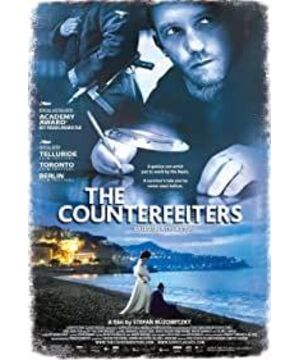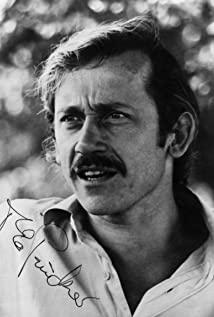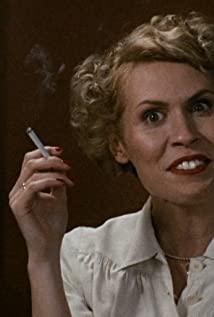If the matter in this report is true, it is simply the Sino-Japanese War version of "The Counterfeit Banknote Maker". It seems that this counterfeiting of currencies of other countries to disrupt the economy of enemy countries is a very popular practice in the Allied countries of World War II. I wonder if they inspired each other? I would also like to know whether the Allies have also "a tooth for a tooth, an eye for an eye". And how long is the history of this method of military warfare plus economic warfare? Suffering from having no information at hand for a while, I have to wait for it to be verified later.
This film makes it difficult for me to comment, because when I watched the film, I was wobbly from beginning to end. Sometimes I agree with the protagonist Sally’s "survival of the fittest" theory, and sometimes I praise the resolute resister Borg’s. Moral stance. Against the background of the world war that shattered all order, morality, and humanity, the people in the movie struggled to survive on the screen, and I was entangled and confused outside the screen. The director seems to have deliberately put the film's sights on the gray area of unclear black and white, downplaying the absolute portrayal of justice and evil. All people have their own positions that they can rely on, and all people seem to be vulnerable. The film tells an unclear story in a gloomy atmosphere.
The protagonist Sally’s theory of "survival of the fittest" has always made me feel a little awkward, just like the social Darwinism that has been debated and debated. The latter is a forceful plunder and expansion without distinguishing right from wrong, while the former is a blind compromise without knowing right from wrong. In fact, what really puzzles me is whether it is because the world is getting worse and the living environment is becoming more and more cruel, and we have to compromise "adaptation" and the survival of the fittest; or it is because we are always compromising "Adaptation" and "survival of the fittest" have allowed the world and society to become cruel day by day. I don't know which is the cause or the effect, it's like being caught in an endless loop.
A few days ago, seeing reports of student suicides, most of the people commented that young people nowadays are psychologically fragile, have poor ability to withstand stress and frustration, and cannot face a cruel society. Maybe they are all right. In order to test well in the school, young people who have grown up in arts, sciences, history and philosophy, piano, chess, calligraphy and painting, English exams, and Olympiad competitions really don’t have time to exercise their psychological endurance. If you focus on middle schools and universities We can launch a stress test five when enrolling students, maybe this problem can really be solved on the surface. This question is too difficult to talk about, let's not talk about it. I have said so much, but in fact I just want to ask, everyone is saying that this society is cruel and we should be strong, but who makes this society cruel? Human beings have been complacent, self-righteous, and self-recognized as advanced intelligent creatures for so many centuries. Is this question no one thought about, no one tried to answer it?
In that remote generation of the law of the jungle where the hairy and the blood are eaten by the weak, the humans work hard to exercise, gang up, eat and wear warmth, in order to prevent themselves from being eaten by wild beasts or other people, and to eat wild beasts or other people; and now We have long thought that we have got rid of the age of ignorance and are complacent about entering the age of civilization, but in this age of civilization, we have to work hard to hone our hearts and spirits in order not to let this age of civilization or other people. Drive yourself crazy.
Speaking too far, I can't come back. The transformational power of the cruel environment is too great, just like the brutal concentration camps in the movie, but the Jews who made counterfeit money have been changed. They chose to compromise under the pressure of cruel slavery, threats of death, and temptation. "Adapted" to the environment, and occasionally resisted. He was immediately regarded as an outlier and saboteur, followed by suppression, and even tried to help the "environment" clear out the outlier. It's like we blame the student who committed suicide for being weak, instead of questioning how much pressure the world puts on him.
Is it true that when society becomes extremely cruel (like in World War II), we remember to question, fight, and reflect? And when society can tolerate it, do we choose to compromise?
The director finished the film with ambiguous and unclear positions, and threw all the problems to the people who watched the film.
View more about The Counterfeiters reviews











